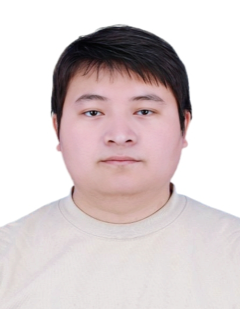Bio
Wen Shichao is a native of China’s Hubei Province, where the rural landscapes and scientific influence shaped his early years. He graduated from Yangtze University in Hubei Province, China in 2019 with a Bachelor of Science in Biotechnology. During his undergraduate years, he had the opportunity to collaborate with a mentor on rice hybridization and genetic modification-related projects.
From June 2019 to July 2020, he worked in the biopharmaceutical industry in Shenzhen, China, specializing in CHO cell cultivation, following his graduation. This experience provided him with invaluable biotechnology knowledge and cell culture skills.
He pursued a master’s degree in philosophy of science from September 2020 to June 2023 at Sun Yat-sen University in Guangzhou, China, due to a profound interest in science and philosophy. During this period of his education, he received a comprehensive education in the philosophy and history of science.
Wen Shichao has an extensive foundation in biology, the philosophy of biology, and the history of biology. He is excited about the future prospects in the dynamic and ever-changing disciplines of biology, philosophy, and their intersections.
Wen’s project
Wen Shichao’s thesis project is about the debate between typological and population thinking, which concerns both statistics and evolutionary theories.
Ernst Mayr (1904-2005), a famous historian and philosopher of biology in the last century, considers that replacing typological thinking with population thinking was the greatest achievement of Darwin. Actually, this distinction is formulated by Mayr in 1959 in an effort to defend the natural historical sciences (that study the living things and their natural environments) and the Modern Synthesis, which is a consolidation of the Darwinian theory of evolution and the Mendelian laws of inheritance from 1920s to 1950s.
First, according to Mayr’s definition, typologists emphasize similarities (average) and ignore individual differences (variation); second, the mean represents an ideal type, which is a Platonic abstract entity; for the populationist, however, the type (average) is a statistical abstraction, and only the variation (individual organisms and their differences) is real. The distribution of a biological population is almost a bell curve and shows a degree of similarity and difference among individuals. Accordingly, typological and population thinking are two distinct statistical approaches to the Normal Distribution.
Simultaneously, they correspond to two distinct evolutionary theories, respectively. The orthodoxy of the Modern Synthesis is population thinking because natural selection acts on individual differences. In the past four decades, however, evolutionary developmental biology (evo-devo) has revitalized typology and orthogenesis (that evolution is caused by internal biological factors, not only by selection) through homologous developmental processes by focusing on similar causal structures that constrain the course of evolution in organisms. In other words, the same developmental types across species show the same evolutionary dispositions.
Consequently, the typological/population debate is relevant to both statistics and evolution. Which is more important for interpreting the normal curve, the mean or the variance? Which is more fundamental to the study of evolution: similarities or differences between individuals?

